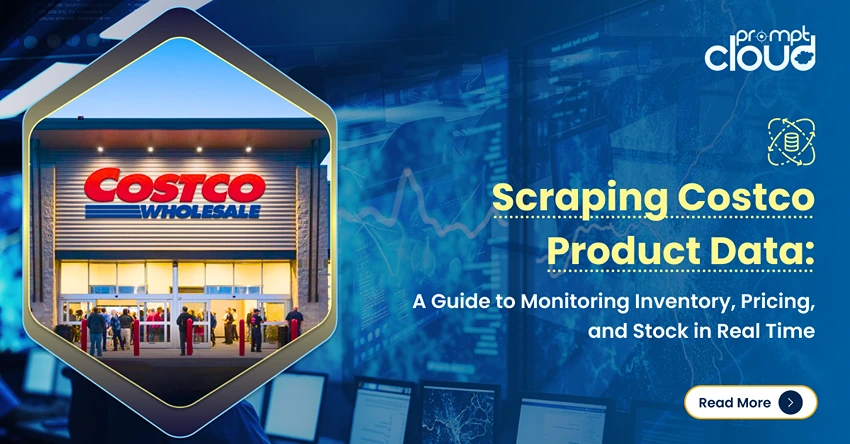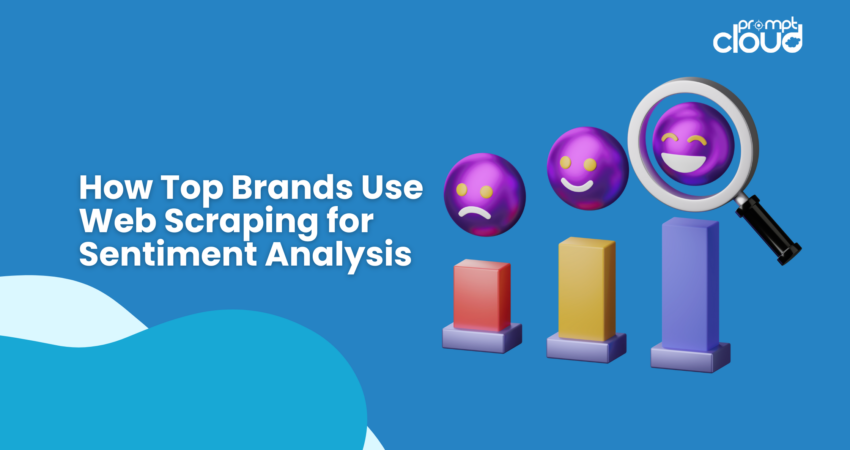
In today’s digital age, brands are constantly striving to understand their customers’ sentiments and opinions. Sentiment analysis, also known as opinion mining, has become a critical tool for businesses to gauge public sentiment toward their products, services, and overall brand image. Web scraping, the process of extracting data from websites, plays a pivotal role in sentiment analysis online by providing the raw data needed for in-depth analysis.
What is Sentiment Analysis?
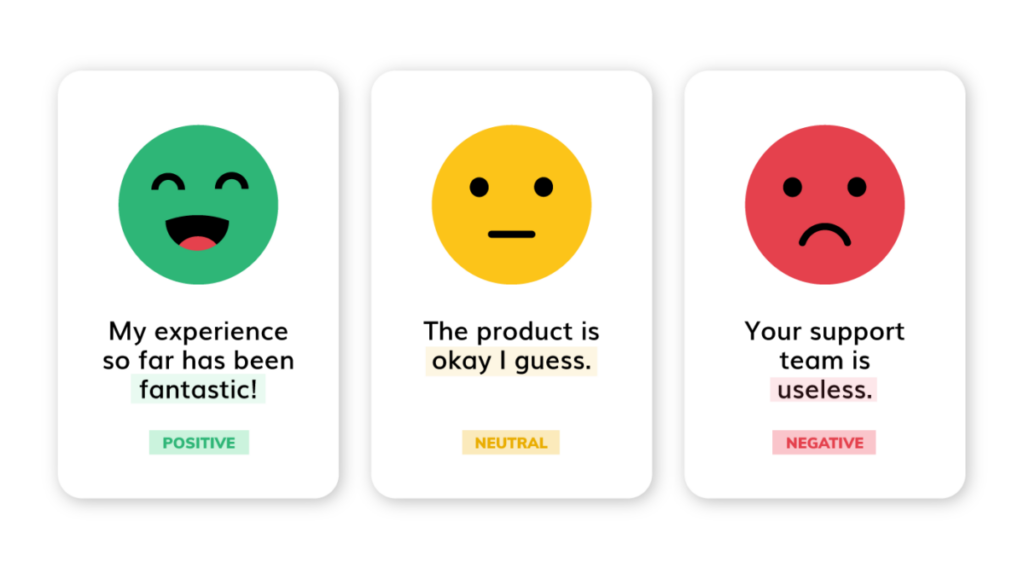
Source:centricconsulting
Sentiment analysis online involves analyzing text data to determine the sentiment expressed in it, whether positive, negative, or neutral. This process typically uses natural language processing (NLP) techniques and machine learning algorithms to assess opinions from various sources such as social media, review sites, blogs, and forums.
The Role of Web Scraping in Sentiment Analysis
Web scraping is essential for sentiment analysis online as it automates the process of collecting vast amounts of textual data from the web. This data, once gathered, can be processed and analyzed to extract valuable insights about customer opinions and trends. Here’s how top brands use web scraping to enhance their sentiment analysis online efforts:
- Monitoring Social Media Sentiments for Coca Cola
Coca-Cola, one of the world’s most recognized brands, uses web scraping to monitor social media platforms like Twitter, Facebook, and Instagram. By scraping comments, tweets, and posts, Coca-Cola can analyze public sentiment about their campaigns, products, and overall brand image in real-time. This allows them to quickly respond to any negative sentiment and capitalize on positive feedback.

Source: keyhole
During the launch of a new product, Coca-Cola’s scraping tools can track specific keywords and hashtags, allowing them to gauge immediate public reaction. By identifying trends and patterns in the sentiment data, Coca-Cola can quickly respond to any negative feedback by addressing issues promptly, such as issuing statements or making product adjustments.
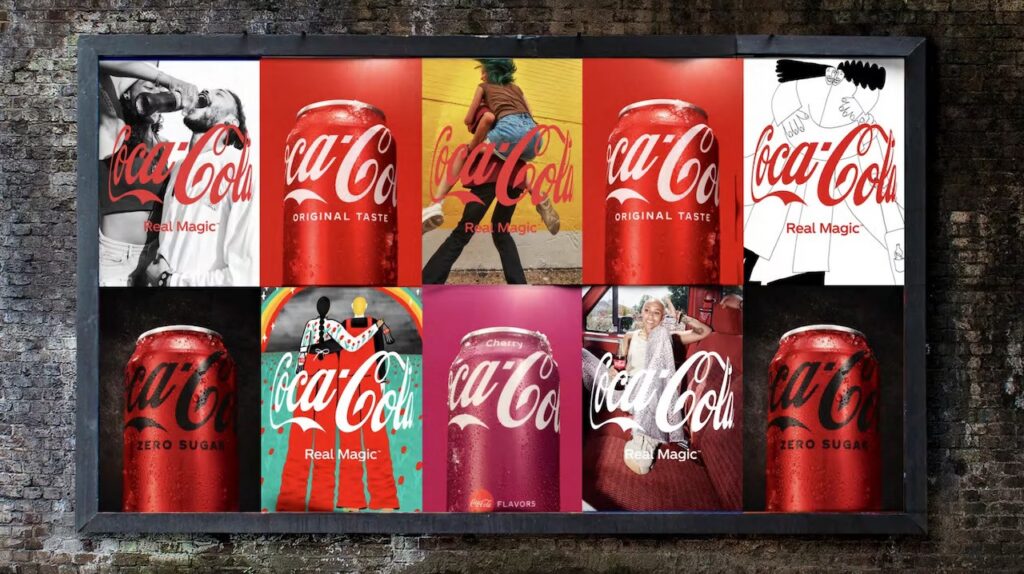
Source: Linkedin Pulse
Positive sentiments are also capitalized upon by engaging with satisfied customers, further enhancing their brand image. Additionally, Coca-Cola evaluates the effectiveness of their marketing campaigns by comparing sentiment data before, during, and after the campaign periods. This real-time monitoring and analysis enable Coca-Cola to not only maintain a positive brand image but also refine their strategies based on comprehensive insights.
- Analyzing Amazon Product Reviews
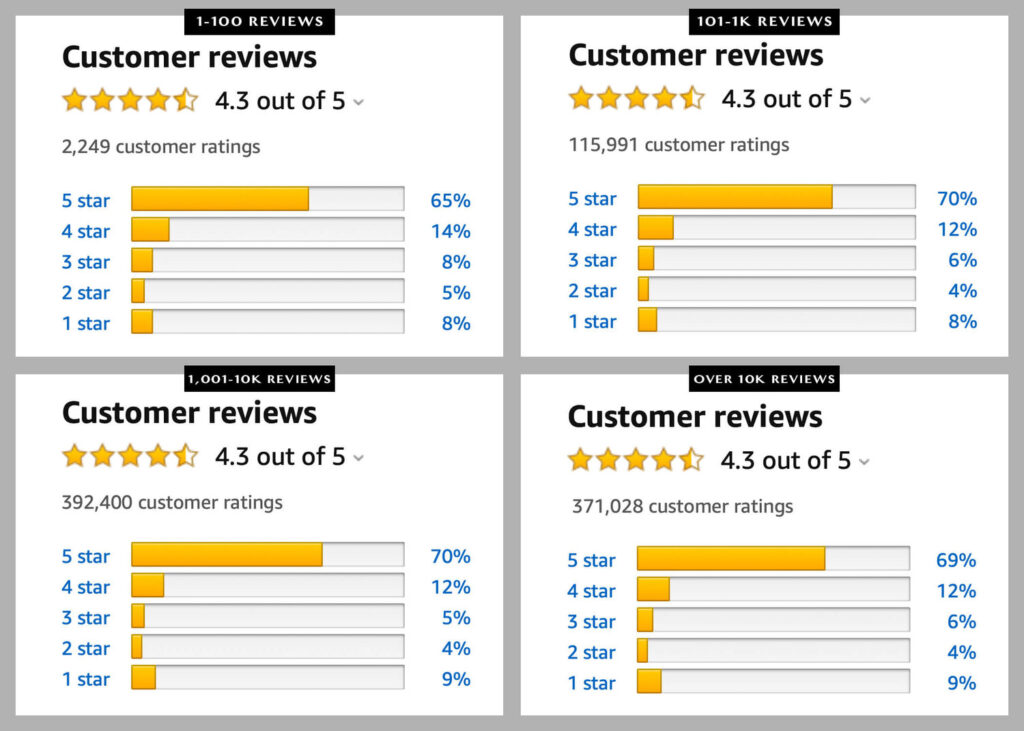
Source: johnwdefeo
Amazon relies heavily on customer reviews to understand how their products are perceived and to maintain high standards of customer satisfaction. By employing sophisticated web scraping techniques, Amazon collects and aggregates reviews from its own platform and other prominent review sites. This extensive data collection enables Amazon to analyze thousands of reviews in real-time, identifying prevalent trends, recurring complaints, and areas that require improvement.
For example, if a new electronic gadget consistently receives negative feedback about battery life, Amazon can quickly alert the product team to investigate and address the issue. Positive reviews highlighting specific features can be used to promote those aspects more prominently. By scrutinizing this data, Amazon not only enhances product quality but also tailors its marketing strategies to emphasize strengths and mitigate weaknesses.
Furthermore, the insights gained from this analysis help Amazon in refining product recommendations, improving customer service, and fostering a more responsive and customer-centric business model. This ongoing, detailed review analysis is integral to Amazon’s strategy for maintaining a competitive edge and ensuring customer loyalty.
- Nike Competitor Analysis
Nike employs web scraping to perform comprehensive competitive analysis, gathering data on competitors’ products, customer feedback, and marketing strategies. This involves scraping information from various sources such as competitor websites, online reviews, social media platforms, and industry forums. By collecting and analyzing this data, Nike gains valuable insights into how competitors are perceived, what customers are saying about their products, and the effectiveness of their marketing campaigns.
For instance, if Nike notices a surge in positive reviews for a competitor’s new running shoe, they can delve into the features that are being praised and consider similar innovations or enhancements for their own products. Conversely, identifying negative feedback about competitors allows Nike to avoid similar pitfalls and emphasize their strengths in those areas. This strategic use of web scraping helps Nike to fine-tune their product development, adjust marketing tactics, and proactively respond to market trends. By staying informed about competitor activities and customer sentiments, Nike can continually adapt and optimize their strategies to maintain and even enhance their competitive edge in the sportswear market.
- Customer Feedback on Starbucks Forums & Blogs
Starbucks leverages web scraping to gather extensive customer feedback from forums and blogs, where detailed opinions and discussions about their products and services are frequently shared. By scraping and analyzing this data, Starbucks can delve deeper into the nuanced perspectives of their customers, which are often more candid and comprehensive than those found on traditional review sites. For instance, a forum discussion might reveal recurring dissatisfaction with the temperature of their coffee in specific regions, or blog posts might highlight trending preferences for certain seasonal flavors.

Source: business2community
This rich, unfiltered feedback allows Starbucks to identify specific pain points and preferences that might not be apparent through other feedback channels. By understanding these insights, Starbucks can make data-driven decisions to enhance their product offerings and customer service.

Source: business2community
For example, if a significant number of customers on a coffee enthusiast blog express a desire for more vegan options, Starbucks can consider expanding their vegan menu items. Similarly, feedback about the ambiance or service quality in particular locations can prompt targeted improvements. This approach ensures that Starbucks stays attuned to the evolving needs and expectations of their customers, ultimately fostering greater customer satisfaction and loyalty.
Conclusion
Web scraping has become an indispensable tool for top brands looking to harness the power of sentiment analysis online. By collecting and analyzing data from various online sources, brands can gain valuable insights into customer sentiment, improve their products and services, and maintain a competitive edge. As the digital landscape continues to evolve, the integration of web scraping and sentiment analysis online will only become more critical for brands seeking to understand and engage with their customers effectively.
For more information on how PromptCloud can help your brand leverage web scraping for sentiment analysis online, visit our services or contact our team for a personalized consultation.














